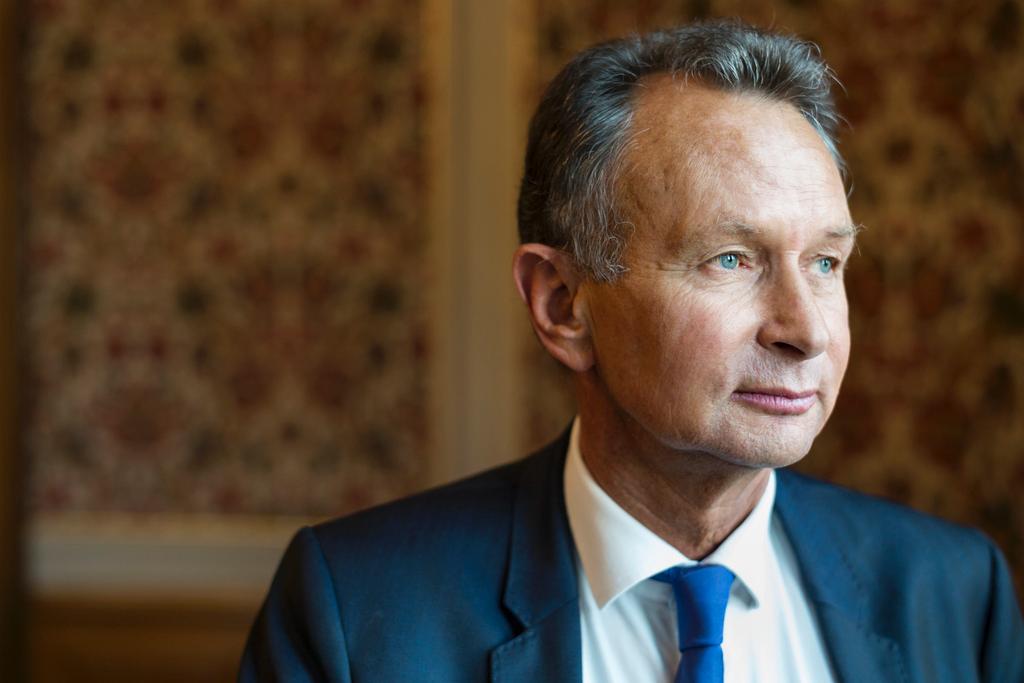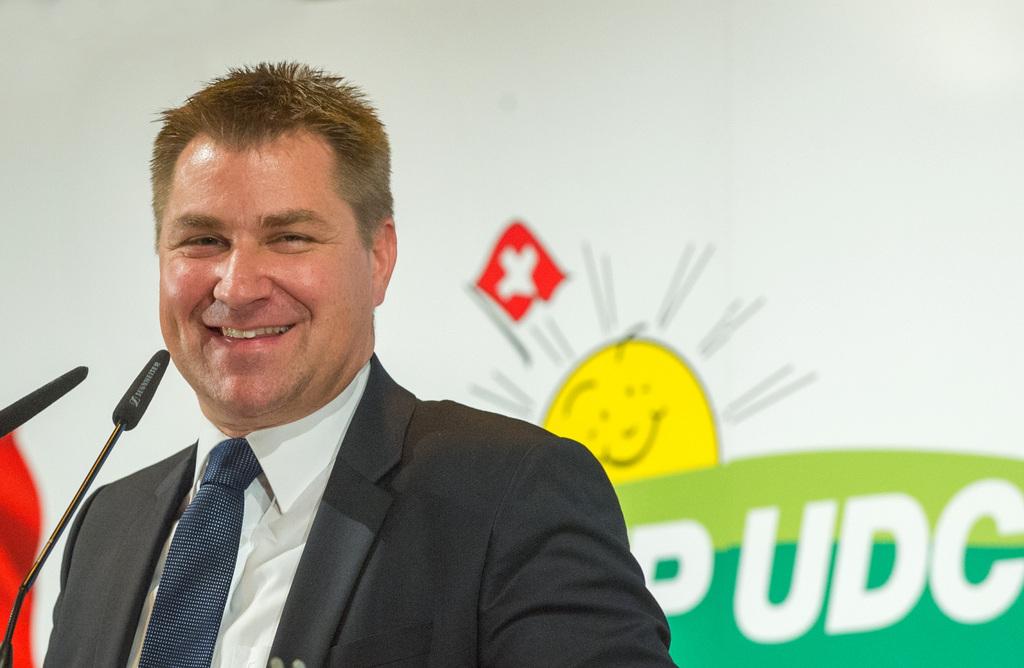‘We stand for solidarity and an open, fairer Switzerland’
Improving working conditions and ensuring the retirement system benefits those who need it most will be the central policy themes for the leftwing Social Democratic Party going into October's federal parliamentary elections.
President of the party since 2008, Christian Levrat says contentious national issues such as immigration and relations with the European Union will be resolved by first addressing economic and social issues within Switzerland.
In an interview conducted in March, Levrat told swissinfo.ch crucial issues central to the party’s platform would be responding to the needs of older workers, who are often excluded from the workplace, as well as the working conditions of women.
swissinfo.ch: What are the priorities for the Social Democrats during the next parliament?
Christian Levrat: Employment and retirement seem to me to be the two major issues. Employment of older workers and working conditions for women, as well as maintaining a retirement system that benefits the middle class and those on low incomes, are our major concerns.
The Social Democrats were the force behind the establishment of the social security system and we are still its guarantor today. We expect to continue to play this role, knowing that other issues – the European question, immigration policy – will also be at the heart of the political debate.
swissinfo.ch: How far are the Social Democrats prepared to go to save the bilateral agreements with the EU?
C.L.: For me, it is obvious that we must maintain these bilateral agreements. But I don’t think the game will be won externally; the issues will be resolved in domestic politics. It will be played out in the accompanying measures of social and economic policy that the Social Democrats are ready to advocate to ensure that the relative prosperity of our country further benefits the middle class and those on low incomes.
We have to take solid measures that include a more significant investment in training, in particular for young people and women, a revaluation of salaries in certain sectors, and effective controls on the workplace to ensure that businesses do not shut out older workers.
The question of older workers is critical. We are proposing to reign in opportunities for firing older workers, assisting workers to retrain from the age of 50, as well as a flexible retirement system that would allow people to disengage from professional life bit by bit.

More
The Social Democrats and the Swiss Abroad
swissinfo.ch: How do you propose to deal with the effects of the strong franc?
C.L.: Four measures seem indispensable. First is to re-establish a floor on the exchange rate. Whether the floor rate is implied or explicit doesn’t matter. The essential point is not that the head of the Swiss National Bank formally announces a floor rate, it is that the markets understand that the SNB has fixed a limit and that it will not let the franc appreciate in an unreasonable manner.
Second, investment by the state in research and innovation. Most of our neighbouring countries or competitors support businesses that create jobs to a greater extent.
Third, we must stop businesses using the strong franc as a pretext for taking a whole raft of measures that have a negative effect on working conditions.
Fourth, we must work out a way to ensure that the gains made by importers and large retailers on the back of the exchange rate are passed on to consumers. That will probably mean that Switzerland will have to take another look at the law on cartels. What is prohibited in all the Western countries in terms of economic cartels and abuse of a dominant position in the market is allowed in Switzerland. We need a more effective system of competition.
swissinfo.ch: In recent years there has been a lot of debate about Islam – wearing the veil, radicalisation, terrorism. How do the Social Democrats see as Islam’s place in Swiss society?
C.L.: Most cantons recognise three official religions: Protestantism, Catholicism and Judaism. I am of the opinion that we should widen this list to include Islam, that there should be a Swiss Islam. We need to make Islam visible, to allow Muslims to live their religion in a peaceful manner, under the direction of Swiss imams.
We have to ensure that these imams speak one of the national languages perfectly, that they know the fundamental values on which our society is based. We don’t need Salafist imams here!
The University of Fribourg has an interesting project with an Islamic institution that should see the dialogue between the religions intensified. The University of Fribourg is an old Catholic university with a strong Dominican presence: it seems to me a good place to foster dialogue between the religions and training of Muslim clerics in Europe.
swissinfo.ch: The Social Democrats decided to launch an initiative to introduce ‘cheques for children’, but then dropped it. Are you no longer interested in this issue?
C.L.: On the contrary. But we wanted to concentrate on campaigning against the initiative put forward by the Christian Democratic Party that calls for tax exemptions on child allowances that, because of the progressivity of income tax, will primarily benefit wealthy families.
Next, we are waiting for a report from the finance department which will enable us to evaluate the feasibility of these “cheques for children”. Finance Minister Eveline Widmer-Schlumpf has indicated she is in favour of the idea, which would see every family receive a tax rebate that would be the same amount for each child, independent of revenue.
It’s a serious project that we are going to advocate in parliament. With the support of Eveline Widmer-Schlumpf and those who for months have assured us that family policy is a priority, we think we can obtain a majority. The system that we are proposing is more effective because it targets families who need help.
Translated from French by Sophie Douez

In compliance with the JTI standards
More: SWI swissinfo.ch certified by the Journalism Trust Initiative












You can find an overview of ongoing debates with our journalists here . Please join us!
If you want to start a conversation about a topic raised in this article or want to report factual errors, email us at english@swissinfo.ch.